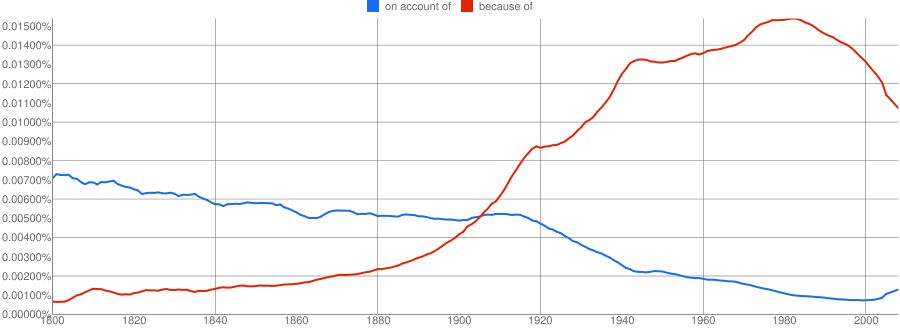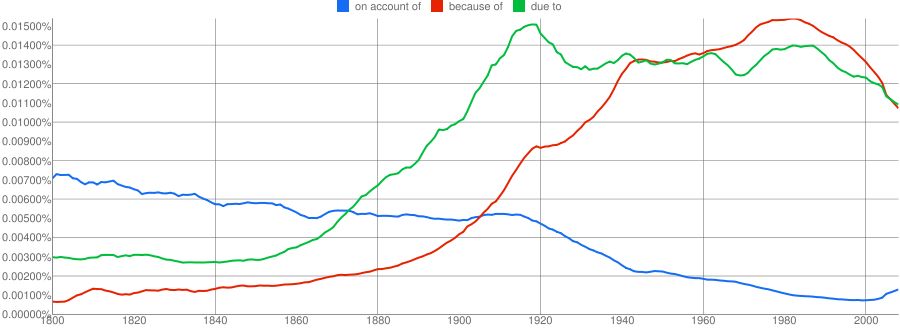Word Count
Writers Talk About Writing
On Account of My Peeve
Recently I was writing a tweet and typed "on account of." Something about it seemed wrong to me, but I couldn't say what. I rewrote my tweet, determined to look into the troubling phrase when I had a moment.
Merriam-Webster's Collegiate Dictionary defines on account of as "for the sake of, by reason of," and The Cambridge Dictionary of American Idioms lists its meaning as "because of something," as do other dictionaries. I was reaching for the latter meaning in my tweet, and the idiom dictionary gives the phrase some credence as a set phrase.
Merriam-Webster's Dictionary of English Usage (MWDEU) states that on account of has been in use since 1792 and is considered casual speech. "Most [usage commentators] give it at least grudging acceptance, if only because they regard it as the lesser of two evils." (The greater of the two evils is using on account of to mean because, which is considered nonstandard English.) MWDEU notes that on account of appears in print, but not as frequently as because of, which is backed up by Google Ngrams:
Interestingly, The New Oxford Dictionary for Writers and Editors suggests using on account of instead of due to. I don't think anyone's listening, though. Due to and because of are both more common in books between 1800 and 2008, with because of only recently becoming more popular than due to:
I'm not sure on account of is fitting for more formal copy. A search for the term in the Corpus of Contemporary American English returns 997 results, most of them from fiction:
In the kind of town where I grew up, few distinctions were made on account of money unless you were outright redheaded trash. —Roxanna Slade, 2011 (fiction)
However, a sizable chunk of the results came from academic writing:
Thus within the pale of Christendom, miracles become a central feature of the process of canonization. Believers, moreover, accept doctrines that are beyond reason not on account of miracles, but on account of authority. —Church History, September 2006
That last example just strikes a wrong chord for me, though. But then, I hesitated putting the phrase in a casual tweet.
On account of is acceptable English and is especially at home in casual writing or speech. You might even use it in more formal situations, such as academic writing. In my editing, I'll let it stand when it fits the text. In my writing, though, I'll pet my peeve and leave it out.
What do you think: would you use on account of in your writing?




